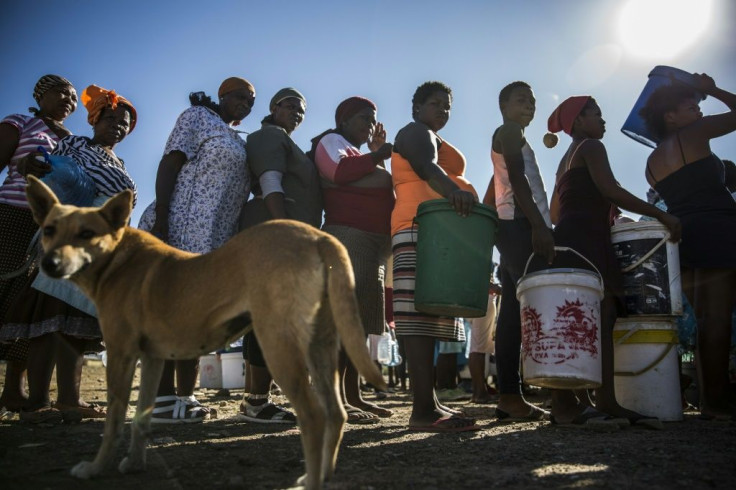South Africa Slips Into 2nd Recession In Two Years

South Africa slipped into recession in the final three months of 2019, the country's statistics bureau said on Tuesday, the second contraction to hit the economy in as many years, which was largely blamed on erratic electricity supplies.
It is the third recession the continent's most industrialised economy has suffered since the end of apartheid in 1994, but the second since President Cyril Ramaphosa came to power in 2018.
The weak performance piles pressure on Ramaphosa's administration which has struggled to keep his election pledge to revive economic activity in one of Africa's powerhouses.
Instead, South Africa remains dogged by high and rising debt, low growth and soaring unemployment -- and is now at risk of a fallout from the deadly coronavirus which has affected more than 70 countries worldwide.
Gross domestic product fell by 1.4 percent in the fourth quarter, after dropping by 0.8 percent in the previous three months, Statistics South Africa said.
This took growth in Africa's most industrialised country for all of 2019 to just 0.2 percent, its lowest since the global financial crisis in 2009.
Ramaphosa's government will barely avoid more tumult with the economy officially forecast to only grow 0.9 percent this year, and as low as 0.5 percent according to other predictions.
"The poor growth figures for the last quarter are not pleasing but at the same time they could not have come as a shock or a surprise to us because the signs were there," Ramaphosa told journalists in Cape Town.
"It has been there for all of us to see, the load-shedding (power blackouts) and the impact it has had on production," he said.
Weak agriculture output and transport were the main drags on growth in the last quarter, StatsSA said, followed by construction, mining and manufacturing, which outweighed positive contributions from finance and government spending.
Seven of the nation's 10 economic sectors contracted in the fourth quarter, StatsSA said.
"Finance, mining and personal services managed to keep their heads above water, but this was not enough to prevent the economy from sliding into its third recession since 1994," it remarked.
Drought in parts of the country and floods in others hurt agriculture and power station output, leading to disruptions in electricity and water supplies.
Recession is defined as two consecutive quarters of negative growth.
South Africa previously went into recession in 2008/2009 -- which was prompted by the global financial crisis -- and then again in 2018.
Growth has been stunted by, among other issues, rolling electricity blackouts that have cost the country hundreds of millions of dollars in lost output.
Eskom, which supplies 95 percent of South Africa's electricity, has been crippled by poorly designed coal-fired power stations, as well as decades of mismanagement and alleged corruption under former president Jacob Zuma.
The drop in the last quarter was significantly worse than market watchers had expected.
The damage to growth prospects due to power cuts "has been stark", and could not have come at a worse time "when global headwinds are suggesting that slower world economic growth is now likely, primarily because of the impact of the coronavirus on international supply chains," said North-West University economist Raymond Parsons.
The economy remains in a "fragile state" and risk of seeing a growth rate of around 0.5 percent this year, said Investec Bank economist Lara Hodes.
First National Bank's economist Matlhodi Matsei, said "severely low confidence levels", load-shedding and disruptions from the spread of COVID-19 cloud South Africa's growth outlook.
Although coronavirus has not yet arrived in South Africa, Ramaphosa acknowledged that "no doubt we are going to be a candidate".
Opposition parties have blamed Ramaphosa's government for the economic fall.
The radical leftist and third largest party, the Economic Freedom Fighters (EFF) warned South Africans "should soon wake up to the reality and indisputable fact that the neo-liberal policies of Ramaphosa will continue to worsen the economic".
© Copyright AFP {{Year}}. All rights reserved.





















